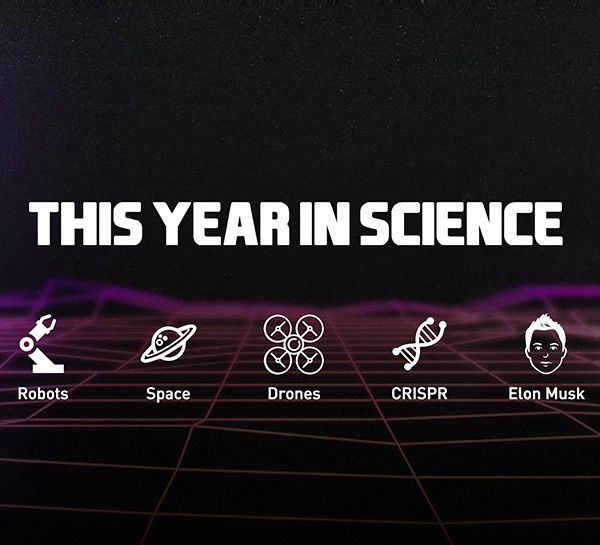Archive for the ‘science’ category: Page 133
Jan 5, 2016
How Assistive Technology Is Opening New Doors for ALS Patients
Posted by Dan Faggella in categories: innovation, science, wearables

Image credit: iDigitalTrends
While the “Ice Bucket Challenge” raised millions to fuel research toward a cure for
amyotrophic lateral sclerosis (ALS), there are a number of assistive technologies already at work to help those currently affected by the disease. According to Alisa Brownlee, a clinical manager for the ALS Association, more assistive technologies and brain-computer-interfaces are on the way. At present, the largest hurdle is access.
Brownlee noted that the loss of communication is often the hardest part of ALS for someone to endure. As ALS is a progressive disease, there are several forms of assistive technology that are used based on a given patient’s physical status. Each form of that technology will work for awhile, but then patients will have to move on to something else as the disease progresses, she says.
Using computer access as one way to help maintain an ALS patient’s communication skills, ALS patients can transition to a track-ball mouse and on-screen keyboard in lieu of a standard computer mouse. From there, a person can use a head-mount, eye-gaze system, and even a tablet computer with a switch scanner.
Continue reading “How Assistive Technology Is Opening New Doors for ALS Patients” »
Dec 29, 2015
This Year in Science
Posted by Klaus Baldauf in categories: biotech/medical, drones, neuroscience, robotics/AI, science, space travel
Futurism presents its annual This Year in Science immersive experience! This year’s themes include robot intelligence, space exploration, drones, CRISPR (a breakthrough gene editing tool), plus a special ‘Futurist of the Year’ award.
Dec 25, 2015
The observer corps | The Economist
Posted by Odette Bohr Dienel in categories: business, government, science
Dec 22, 2015
Unlocking the Brain a Healing Promise for Those Who Suffer
Posted by Dan Faggella in categories: neuroscience, science
Controlling the brain, consciousness and the unconscious through artificial means has long been a staple plot of science fiction. Yet history has a way of proving the fictional to end up as possible, and the future of brain-machine interface appears to hold greater promise than ever before.

Image Credit: Society for Neuroscience (SFN)
According to Neuroscience Researcher, Yale University Fellow, and the Director of Yale’s Clinical Neuroscience Imaging Center, Dr. Hal Blumenfeld, we can now therapeutically (and safely) go inside the brain. As he reflected on the recent advances in neuroscience, Blumenfeld cited the progress that’s been made in the last decade in understanding the relationship between brain activity and conscious thought as one of the biggest breakthroughs. The ability to find the switch in the brain that regulates consciousness, and turn it on and off, is a major step toward the treatment of epilepsy, brain injuries and more, and could have a profound effect on mankind, he said.
“I think the exciting advances are really looking in the network approach to understanding the brain, looking at the brain as a network, and understanding that, for something as wide reaching as consciousness to happen, you really need the whole brain network or most of the brain,” Blumenfeld said. “There’s a switch deep in the middle of the brain that can either be turned on or off. When that gets turned on, the whole rest of the brain network, including the cortex, all start to interact and create consciousness. When that switch gets flipped off, consciousness is turned down and we lose consciousness.”
Continue reading “Unlocking the Brain a Healing Promise for Those Who Suffer” »
Dec 17, 2015
China’s dark-matter satellite launches era of space science
Posted by Andreas Matt in categories: cosmology, particle physics, science
“The detector could help to clear up some mysteries. In 2013, the AMS announced it had seen hints of dark matter but so far it has detected too few high-energy particles to say for sure. Though DAMPE lacks the equipment to resolve the conundrum directly, it could reveal if the signal is caused by a different astrophysical source, such as pulsars, says Capell.
Although it will collect fewer incoming photons, DAMPE is better at pinpointing their energy than are existing γ-ray telescopes, such as NASA’s Fermi-LAT, says Miguel Sanchez-Conde, a physicist at the Oskar Klein Centre for Cosmoparticle Physics in Stockholm. This capability should allow DAMPE to see sharp spikes in radiation predicted by some dark-matter models.”
Dec 17, 2015
Updated: Budget agreement boosts U.S. science
Posted by Bryan Gatton in category: science
Dec 16, 2015
Carlota Perez: In the midst of ICT revolution: next revolution 30 years out | vimeo.com
Posted by Odette Bohr Dienel in categories: business, computing, economics, finance, governance, innovation, policy, robotics/AI, science, strategy
Economist Carlota Perez talk about the future of ICT.














